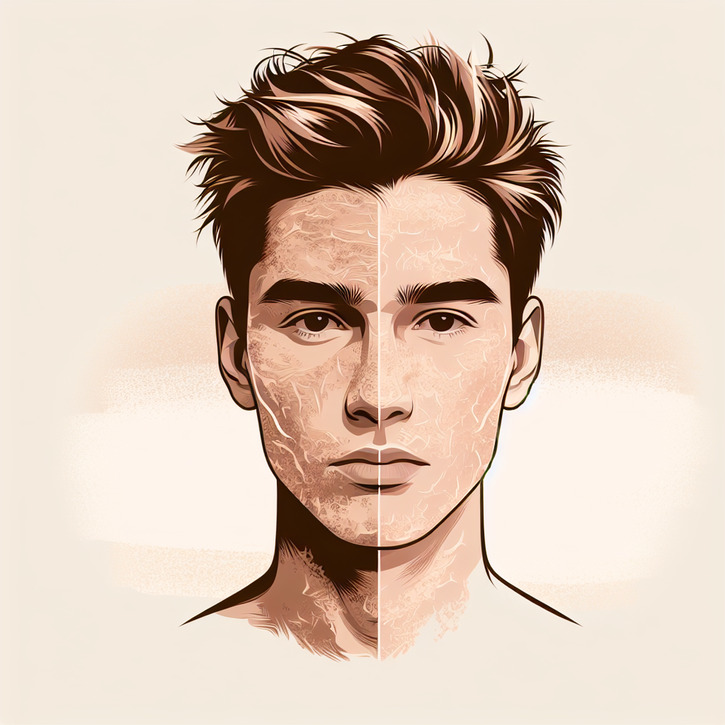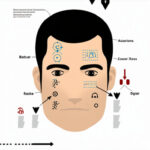Dealing with Dry Skin? Don’t Ignore These Signs of Hair Loss

Introduction to Dry Skin Hair Loss: What You Need to Know
Ever notice that your scalp feels unusually tight or flaky? That might be more than just a minor irritation—it could be dry skin hair loss, a condition that often flies under the radar despite its impact on your hair and scalp health. Essentially, when your scalp gets too dry, it can mess with your hair's natural growth cycle and even lead to noticeable shedding. Catching the telltale signs early on is key to preventing a bigger problem down the road. Today, we're going to chat about how dry skin and hair loss are connected, dig into some of the root causes, and toss around both home remedies and professional tips. If you’ve ever wondered whether your everyday environment or lifestyle is playing tricks on your hair, keep reading for some straightforward, actionable insights.
Understanding the Connection Between Dry Skin and Hair Loss
When your scalp loses its natural moisture, it sets the stage for trouble—dryness can lead to breakage and even inflammation in your hair follicles. But it’s not just about looking good; a healthy, hydrated scalp is crucial for robust hair growth and keeping irritation at bay. In this section, we’ll break down how low moisture levels can spark inflammation and hinder nutrient absorption by your hair follicles, ultimately leading to hair that’s more prone to falling out. Knowing how these pieces fit together is essential if you’re aiming to get ahead of the problem.
Why Early Detection of Dry Skin Hair Loss Matters
Spotting the early signs of hair loss due to dry skin is like getting a heads-up before an unexpected downpour. At first, you might only notice a bit of itchiness, slight dryness, or even some minor flaking. These subtle symptoms are your scalp’s way of alerting you that it needs some extra TLC. By acting quickly—tweaking your hair care routine, reconsidering your lifestyle choices, or even adjusting your diet—you can slow or even reverse the damage. Early action not only helps preserve your hair's fullness but can also save you time and money by sidestepping more drastic treatments later on.
The Impact of Environmental and Internal Factors
It turns out that dry skin hair loss isn’t just about what you’re putting on your head—it’s influenced by both the world around you and what’s happening inside. Weather extremes, pollution, and the use of harsh hair products are all external culprits that take a toll on your naturally dry scalp. On the flip side, internal issues like hormonal imbalances, nutritional gaps, and even stress can weaken your skin’s natural barrier, making moisture loss even worse. By understanding how these factors interact, you can tailor your approach—whether that means adjusting your surroundings, rethinking your diet, or both—to protect and nurture your scalp.
Common Causes of Dry Skin Hair Loss
Environmental Stressors and Their Effects
Environmental stressors are a big piece of the puzzle when it comes to dry skin hair loss. Think about the flip-flop from bone-chilling winter air to sticky, humid summer conditions—your scalp can struggle to keep up with such changes. On top of that, everyday hassles like pollution, UV exposure, and hard water can wash away the natural oils that shield your skin. This loss of essential moisture not only leaves your scalp feeling tight and irritated but can also weaken your hair, making it more prone to breakage. By staying aware of how these external factors affect your scalp, you can take steps—like using protective products and extra moisturizing routines—to keep them at bay.
Watch Your Hair Come Back FASTER Than You EVER Dreamed Possible

WITHOUT Expensive Medications, Lasers, or Painful Surgeries!
Try this at homeHormonal Imbalances and Genetic Predispositions
Sometimes, the answer lies in your genes or a hormonal rollercoaster. Hormonal fluctuations, whether due to thyroid issues, menopause, or andropause, can seriously impact your scalp’s moisture levels. And if dry skin and hair loss run in your family, you might find yourself more prone to these issues. Hormones can slow down oil production, while your genes might not provide the best blueprint for retaining moisture. Understanding these factors is crucial because it helps you gauge what kind of treatments might work best for you.
Lifestyle Factors Contributing to Dry Skin Hair Loss
Let’s face it: our daily habits can sometimes do more harm than good. Over-washing your hair, constantly styling with harsh products, or even frequent exposure to chlorinated water—all these routine choices can strip your scalp of the natural oils it needs. Couple that with poor nutrition, not enough water, and the stresses of everyday life, and you’ve got a recipe for chronic dryness that eventually leads to hair loss. A few tweaks—like staying well-hydrated, cutting back on chemicals, and embracing self-care—can really help keep your scalp in check and your hair looking its best.
Recognizing the Early Signs of Dry Skin Hair Loss
Subtle Scalp Dryness and Irritation
Often, the first hint that something’s off is a bit of dryness and mild itchiness on your scalp. You might feel a slight burning sensation or notice fine flakes of skin that look a lot like dandruff. While these signs can seem minor at first, they’re your scalp’s way of warning you that it needs a moisture boost. Catching these hints early by adopting a more hydrating routine can go a long way in protecting your hair follicles from further damage.
Noticeable Thinning or Shedding of Hair
Another sign to be on the lookout for is more hair than usual ending up on your brush or pillow. While losing a few strands every day is totally normal, a noticeable increase in thinning or shedding might indicate that your scalp is crying out for extra care. When the natural moisture balance is disrupted, your hair’s growth cycle takes a hit, resulting in weaker strands that are prone to breaking. Spotting this trend early means you can jump in with targeted hydration and care before the situation escalates.
Flaking and Scalp Inflammation Issues
When flaking goes beyond a bit of dandruff—accompanied by redness, inflammation, or small patches of skin irritation—it’s time to pay attention. Such symptoms suggest that your scalp’s moisture barrier is compromised, making it vulnerable to more serious issues. Keeping an eye on these signs and understanding the difference between a harmless flake and a warning signal can empower you to intervene sooner. Consistent monitoring is key, especially in spots where your hair seems to be thinning.
Top Trichologist: Do This To Your Scalp To Regrow A Full Head Of Hair

Completely natural and dirt cheap way that makes it possible for you to finally regrow all your hair back.
Learn moreHome-Based Solutions for Managing Dry Skin Hair Loss
Effective Moisturizing Routines and Hydration Tips
One of the simplest ways to fight dry skin hair loss is by dialing up your moisturizing routine. Start by choosing a gentle, sulfate-free shampoo and a conditioner that really locks in moisture. Throw in a leave-in conditioner or a light serum to keep hydration levels steady throughout your day. And don’t forget—taking a few extra minutes to massage your scalp can work wonders for stimulating blood flow and boosting natural oil production. A humidifier during those cold, dry months can also be a game-changer. Trust me, these small adjustments can make a big difference in keeping your scalp healthy and your hair strong.
Natural Remedies and Essential Oils for Combating Dryness
If you’re leaning towards natural solutions, there’s a whole world of essential oils and herbal remedies to explore. Coconut, jojoba, and argan oils are fantastic for deep hydration, while a mix of these with a carrier oil like almond or olive oil can work as a soothing scalp massage serum. Add in herbal infusions featuring aloe vera, rosemary, or lavender, and you’ve got a gentle, chemical-free way to calm inflammation and encourage hair growth. These natural options offer a refreshing alternative to conventionally loaded products, letting you nourish your scalp with ingredients straight from nature.
DIY Treatments for Scalp Health Maintenance
Sometimes, the best solutions are the ones you craft yourself. DIY scalp treatments can be both cost-effective and personalized. For example, mix a bit of honey, mashed avocado, and aloe vera to create a hydrating mask that you can massage into your scalp for about 20 minutes before rinsing away. Or try a warm oil treatment once a week—just heat your favorite natural oil a bit, massage it gently into your scalp, and feel the moisture work its magic. These simple, home-made treatments not only boost moisture levels but also help soothe irritation and reinforce your scalp’s natural barrier over time.
Expert Advice and Medical Treatments for Dry Skin Hair Loss
When to Consult a Dermatologist or Trichologist
While home remedies can do a lot of good, there are moments when professional guidance is essential. If you’re facing persistent issues like severe scalp irritation, heavy shedding, or significant thinning, it might be time to chat with a dermatologist or trichologist. These specialists can dive deep into your scalp’s condition and offer tailored treatments—from prescription-strength products to advanced therapies—that are designed just for you. Early professional consultation can really help nip the problem in the bud before it turns into something more serious.
Overview of Professional Treatments Available
When it comes to professional care, there’s a wide range of options available, all depending on the specifics of your condition. Some dermatologists might suggest topical corticosteroids to cut down inflammation, while trichologists could recommend shampoos and conditioners crafted to restore moisture and balance. In tougher cases, treatments like platelet-rich plasma (PRP) injections or low-level laser therapy might be on the table. These approaches not only support your scalp’s natural healing but also help slow down further hair loss. Being informed about these options can empower you to work hand-in-hand with your healthcare provider in crafting a plan that’s right for you.
Why The Ancient Samurai Warriors Never Lost Their Hair…

guaranteed to work for any men or women out there...
Try this at homeInnovative Therapies and Product Recommendations
The world of hair care is constantly evolving, and new therapies are emerging all the time to tackle dry skin hair loss head-on. Nowadays, you'll find products that blend hydrating ingredients with growth-boosting peptides to help nourish the scalp and energize hair follicles. Add in treatments like LED light therapy or micro-needling, and you’ve got some truly modern solutions that show a lot of promise. Always look for options that are backed by solid research and expert recommendations, and you’ll be well on your way to a more updated, effective approach to scalp rejuvenation.
Preventative Measures and Daily Care for Dry Skin Hair Loss
Establishing a Balanced Hair and Skin Care Regimen
They say prevention is better than cure, and when it comes to dry skin hair loss, that couldn’t be more accurate. Adopting a balanced hair and skin care routine lays a strong foundation for a healthy scalp. Start by choosing products that are naturally in tune with your skin’s pH and free from harsh chemicals. Incorporate gentle cleansing, consistent moisturizing, and some protection against environmental challenges—you might even consider a hat or UV-protectant spray on sunny days. And a regular scalp massage can go a long way in keeping your hair sturdy while maintaining supple skin. Remember, tweaking your routine as the seasons change can help meet your scalp’s shifting needs throughout the year.
Nutritional Adjustments to Support Scalp Hydration
Did you know that what you eat can have a profound impact on your scalp’s health? A diet loaded with omega-3 fatty acids, antioxidants, and proteins not only fuels your overall well-being but also boosts scalp hydration. Foods like salmon, walnuts, spinach, and berries can supply the nutrients your hair follicles need to stay strong and vibrant. Vitamins A, C, D, and E are particularly valuable for renewing skin cells and ensuring your hair gets the nourishment it needs. Pairing a balanced diet with plenty of water can turn nutrition into a powerful ally against dry skin hair loss.
Avoiding Harmful Environmental Triggers and Chemicals
Finally, one of the simplest strategies is to steer clear of environmental triggers and harsh chemicals that can aggravate dry skin hair loss. This means being cautious about overexposure to pollutants, cutting back on heat treatments, and opting for hair care products free from sulfates and parabens. Little changes—like using filtered water or wearing a cap during peak sun hours—can help shield your scalp from further dryness. By making informed choices, you create a nurturing environment that’s more likely to retain moisture and protect your natural oils.
Conclusion: Taking Control of Dry Skin Hair Loss
Summarizing the Warning Signs and Solutions
As we wrap up our chat about dry skin hair loss, remember that early awareness and consistent care really pay off. Whether it’s noticing slight dryness or an unexpected increase in shedding, every little sign is a cue to give your scalp some extra love. From homemade remedies to professional treatments, there’s a whole spectrum of strategies to help keep your hair healthy. Sure, the link between dry skin and hair loss is a pretty complex one—shaped by environmental, genetic, and lifestyle factors—but the good news is that with the right approach, you can take control and make a positive change. Each step you take now is an investment in the long-term health and beauty of your hair.






